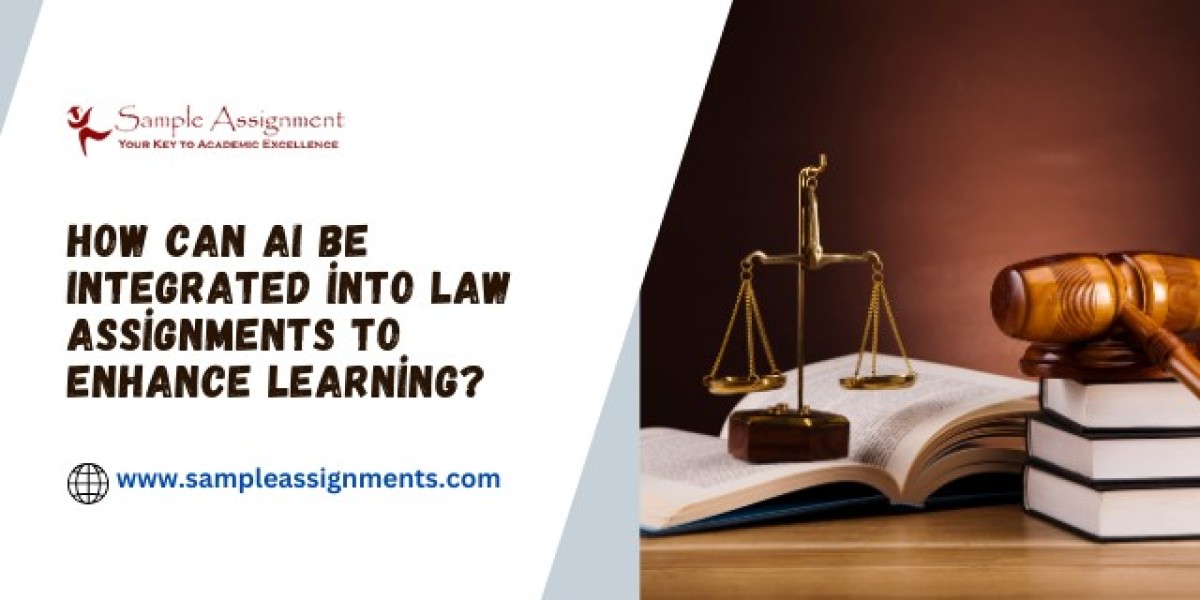In the modern educational landscape, Artificial Intelligence (AI) is revolutionizing how students approach academic tasks, particularly in the field of law education. Law assignments require rigorous research, critical analysis, and structured arguments, all of which can be enhanced with AI-powered tools. AI integration can help students enhance their learning experience, improve efficiency, and develop a deeper understanding of legal concepts. Below, we explore the various ways AI can be incorporated into law assignments to facilitate better learning outcomes.
1. AI-Powered Legal Research Tools
One of the most time-consuming aspects of law assignments is conducting legal research. AI-driven platforms such as Westlaw, LexisNexis, and ROSS Intelligence have transformed this process by offering advanced search functionalities and instant access to legal databases.
Automated Case Law Retrieval: AI tools can quickly scan vast legal libraries and extract the most relevant cases based on keyword searches.
Statutory Interpretation: AI can analyze legislation and statutes, providing explanations and historical context to help students understand legal principles better.
Predictive Analysis: Some AI-powered platforms predict case outcomes based on historical legal data, enabling students to develop more informed arguments.
2. AI-Driven Writing Assistance for Law Assignments
Writing law assignments requires a structured approach, including proper legal reasoning, citations, and formatting. AI-based writing assistants such as Grammarly, Jasper AI, and Quillbot can help improve the quality of legal writing by:
Grammar and Style Enhancements: AI tools can identify and correct grammatical errors, ensuring clarity and coherence in legal arguments.
Plagiarism Detection: Tools like Turnitin and Copyscape ensure that law assignments are original and free from academic misconduct.
Legal Citation and Formatting: AI-powered citation managers like Zotero and EndNote help students format references correctly in styles such as Bluebook, APA, and Harvard referencing.
3. AI Chatbots for Legal Query Resolution
Students often require quick clarifications on legal concepts. AI-driven legal chatbots, like ChatGPT and IBM Watson, serve as virtual tutors, assisting in:
Explaining Complex Legal Theories: AI chatbots simplify legal jargon and doctrines, making them more comprehensible.
Providing Case Summaries: AI can summarize long legal judgments into concise points, aiding students in case analysis.
Answering Frequently Asked Legal Questions: Instant responses to fundamental legal questions reduce students’ dependency on lengthy textbooks.
Read Also : Monopoly GO Partner Events - Desert Bloom Rewards
4. AI-Generated Mock Trials and Case Simulations
Practical learning is essential in law education. AI-powered mock trial platforms and legal simulation software provide students with an opportunity to practice legal argumentation.
Interactive Case Scenarios: AI can generate realistic legal scenarios where students assume the roles of lawyers, judges, or jurors.
Automated Feedback Mechanisms: AI analyzes students' legal reasoning and argumentation skills, providing real-time feedback.
Virtual Courtroom Experience: AI-powered simulations help students understand courtroom procedures, enhancing their advocacy skills.
5. AI for Summarization and Note-Taking in Law Assignments
Law students often need to read and summarize voluminous legal materials. AI tools such as SummarizeBot and Otter.ai help in:
Extracting Key Information: AI identifies the most relevant legal principles from lengthy documents.
Generating Concise Notes: AI automatically structures notes in an easy-to-review format, improving study efficiency.
Voice-to-Text Transcription: AI-powered transcription services help convert spoken legal discussions into written text for further analysis.
6. AI for Personalized Learning in Legal Studies
Every student has a unique learning pace. AI-driven personalized learning platforms adapt to individual learning needs.
AI-Powered Learning Management Systems (LMS): Platforms like Coursera, Udemy, and edX use AI to recommend customized legal courses.
Adaptive Learning Tools: AI assesses students’ strengths and weaknesses, offering tailored study materials.
Virtual Study Assistants: AI chatbots provide one-on-one tutoring and interactive learning experiences.
7. AI for Contract Analysis and Drafting in Law Assignments
Legal drafting is a fundamental skill in law education. AI-powered contract analysis tools streamline the process.
Automated Contract Review: AI scans contracts for errors, inconsistencies, and legal risks.
Clause Suggestion and Correction: AI recommends appropriate legal clauses based on context.
Template Generation: AI-powered drafting tools help students create standard legal documents efficiently.
8. AI for Ethical and Compliance Considerations in Law Assignments
AI can assist in understanding the ethical implications of legal decisions and compliance with legal frameworks.
AI for Compliance Analysis: AI evaluates whether legal assignments align with current regulatory frameworks.
Ethical Considerations in AI Use: AI tools ensure that legal assignments are developed with academic integrity and fairness.
Legal Tech Ethics Training: AI-powered platforms educate students on the responsible use of legal technology.
Conclusion
The integration of AI in law assignments offers an innovative and efficient approach to legal education. From automated legal research and AI-driven writing assistance to virtual courtroom simulations and personalized learning tools, AI enhances the way students engage with legal studies. By leveraging AI-powered resources, law students can improve their research skills, enhance their legal writing, and gain practical legal experience.
Read Also : Which Law Assignment Writing Services Can I Trust to Do My Law Assignment?









